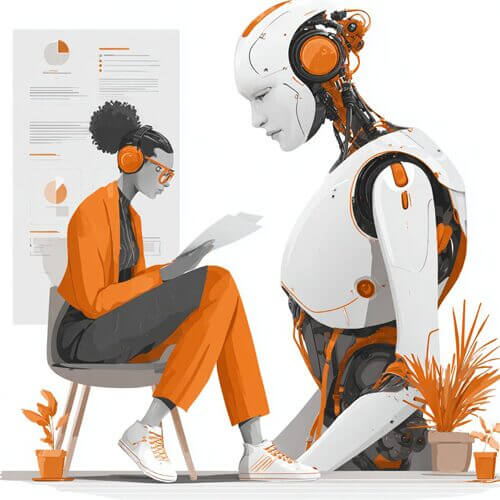A Comprehensive Guide To AI And Search Engine Optimisation
Search Engine Optimisation (SEO) is very important in digital marketing. It helps your content match what users are looking for by meeting their search intent.
Maintaining an underperforming website can be one of the most time-draining challenges for marketers and small business owners alike.
From outdated design and poor user experience to weak SEO performance, keeping a website competitive often requires constant updates and strategic improvements, something not every small team has the time or resources for.
That’s where artificial intelligence (AI) can help. While AI can’t replace your creativity or business strategy, it can take on the repetitive, time-consuming tasks, giving you more freedom to focus on engaging your audience and growing your business.

In fact, a recent survey shows that 64% of businesses believe AI will significantly boost their productivity a promising stat for busy entrepreneurs and marketers.
This article breaks down how AI can enhance your website strategy, save time, and help your site perform at its best.
There’s no shortage of AI-powered tools designed to improve your website’s visibility. But with so many options, choosing the right ones can feel overwhelming. Here are a few trusted platforms that stand out:
A long-time favourite among marketers, Semrush offers a powerful suite of SEO tools both free and paid.
It helps you:
Ideal for building high-quality backlinks, Ahrefs lets you analyse your backlink profile and identify where your competitors are getting theirs, critical for moving up in search rankings.
Other AI-Powered SEO Tools to Explore:

Even the best-designed websites need regular updates. Whether you’re refreshing visuals or adjusting layout elements, AI tools can speed up your workflow.
Visual Design Tools:
Design Optimisation Tools:
While it’s best to leave heavy coding to developers, AI can assist with smaller tasks that improve site performance and speed.
Top Tools:
Website updates often involve new content, whether blog posts, product descriptions, or marketing copy. AI tools can speed up that process.
Popular Tools for Writing:
Other Content Tools to Try:
To get the most value from AI, don’t just follow trends, choose tools that align with your specific goals.
Are you aiming to boost SEO? Improve usability? Streamline content creation? Choose tools that directly support those goals.
Ensure tools integrate with your current platform (e.g., WordPress, Shopify). Tools like Yoast and ChatGPT integrations make the setup simple.
Not all tools are user-friendly. Start with ones that match your skill level and take advantage of demos or free trials before committing.
Prices range from free to premium. Start small, and track ROI to decide if premium features are worth the investment.
Start with one or two AI tools that solve your biggest pain points, maybe that’s SEO, image optimisation, or faster content writing. Once you’re comfortable, gradually expand your toolkit.
AI is here to support not replace your skills. When used wisely, it can remove bottlenecks, simplify workflows, and help you build a website that performs better, loads faster, and delivers more value to your visitors.
Search Engine Optimisation (SEO) is very important in digital marketing. It helps your content match what users are looking for by meeting their search intent.
Artificial Intelligence has been at the forefront of technological advancements, and its integration into marketing campaigns is no exception.
Artificial intelligence is a complex and intricate field that can often be difficult to grasp. People who work in AI often use special terms to explain their research. This makes it hard for others to understand.